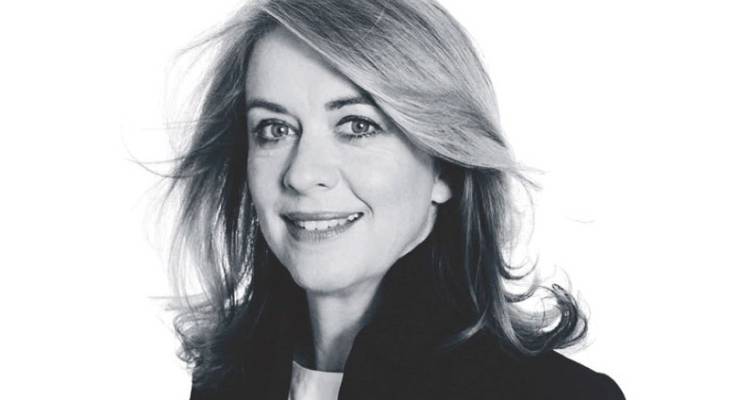
In one of the more surprising developments in media circles in recent months, Sydney Morning Herald editor Judith Whelan has been hired by the ABC to head up its “spoken content” programs — putting her in charge of the capital city flagships on ABC Radio, ABC Grandstand and Radio National.
Whelan is a Fairfax veteran of more than three decades and has been a senior editor at The Sydney Morning Herald for more than 10 years. She’s been the paper’s editor, second only to editor-in-chief Darren Goodsir in the editorial hierarchy, for eight months. But she has no radio experience. According to the ABC’s release, she will “provide editorial and creative direction to meet the overall strategic goals of ABC Radio and the wider Corporation”. She is filling a new role created in April this year as part of ABC Radio’s restructure.
Internally at Aunty, she’s being seen as someone brought in to drive the changes flagged to staff in a September missive by head of radio Michael Mason, which spoke of moving away from a focus on “linear programming” — that is, shows aired on the radio — to podcasts and other digital initiatives to reach a wider audience while saving money. Transmission, by which the ABC sends out its TV and radio signals to millions using the public spectrum, is the single biggest cost to the ABC, gobbling up close to half of the ABC’s annual budget. It is, Mason said in a briefing to staff, and seen by Crikey, a “major challenge”: “Every week we spend a significant amount of money on distributing our content and it does not properly align with our services and our audience demands.”
As one ABC veteran remarked, companies tend to bring in outsiders when they want someone willing to make tough decisions with few loyalties to the status quo. New managing director Michelle Guthrie, with the ABC board, has set a directive that the ABC should reach 100% of Australians by 2020. Radio is expected to deliver half this figure, reaching one in two Australians by that time. Currently, 37.5% of Australians listen to ABC radio, and, Mason told staff, management does not expect this figure to rise. Growth is expected to come from “digital content offerings and competitive digital platforms” — 2% per annum is being saved from the existing budget to invest in digital.
The issue with moving the focus away from radio programming, as many in within the ABC see it, is that it would hypothetically allow the ABC to produce fewer programs, as it would have no need to fill airtime. A restructure of programming could lead to redundancies, cost-cutting or all sorts of other things that strike fear into the hearts of many Radio National staffers.
At Fairfax, sources tip deputy editor Lisa Davies to succeed Whelan. SMH editor-in-chief Darren Goodsir told Fairfax staff yesterday (in comic sans font, for some reason) that Whelan’s poaching says much about her own virtues, but also about “how highly outside organisations regard the transformation of Fairfax and its metropolitian newsrooms in recent years”.

Fairfax has radically adapted its publishing strategy to a digital age, leading the Australian commercial media in its embrace of digital-focused publishing (under its Digital First strategy). Controversially among some readers and former staff, the revolution has slashed the size of the Fairfax newsrooms.
Goodsir writes:
“Judith’s leadership has been pivotal to keeping our newsroom united and focused through these changes, which are ongoing. She has been unfailingly professional, shrewd and insightful in her work with me for the past three years … She has championed our changes to make the SMH a national leader in digital news.
“During Judith’s time as editor, we have secured countless awards on the back of traditional boots-and-all reporting, investigations and audience-led journalism of the highest order. We have continued to break the stories that make a difference – and start the debates that entertain and educate our readers.
“As the Herald’s operational head, she has led our teams to the highest-ever readership figures in the EMMA surveys, and a series of top-rating months in the Nielsen digital metrics.”
Whelan leaves the SMH at the end of the month.








“… all sorts of other things that strike fear into the hearts of many Radio National staffers.”
Not to mention RN listeners.
To the barricades, comrades!
Black belt Judith eh?
Definitely a worrying move for RN listeners.
Tune in to Late Night Live tonight to hear what SHOCKING THINGS Phillip has been up to in his sarcophagi…and YOU WON’T BELIEVE what’s been raising Alan Kohler’s stocks lately – ABC News, the finance report, tonight!!
I wonder if it’s possible for an ex-Fairfax person to escape Fairfax Digital’s low-rent “What-happened-next-was amazing” image.
Seeing lots of scepticism about Whelan in the comments. So thought I’d pipe up and say: Mark Scott was an ex-Fairfax exec too
As his tenure proved. Q.E.D.